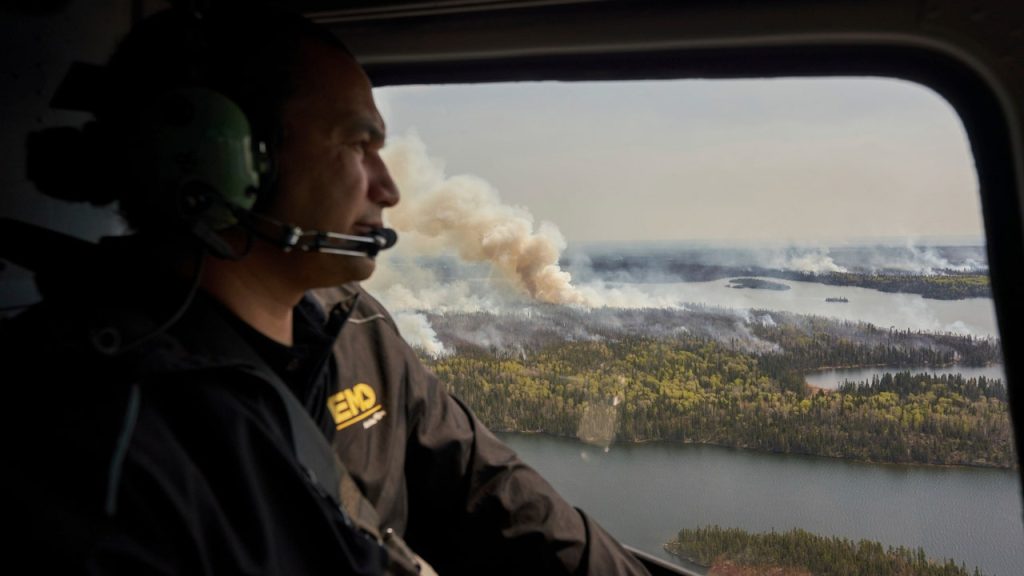Canada is facing the threat of wildfires once again as a blaze near Fort McMurray, Alberta, prompted the evacuation of thousands. However, favorable winds were expected to help push the fire away from the city, easing immediate concerns. Last year’s record number of wildfires across Canada led to smoky conditions in the U.S., but experts believe weather patterns may not create the same smoke-related problems this year. In Fort McMurray, residents have been on alert, with some forced to evacuate parts of the city.
The oil sands hub of Fort McMurray, where many residents work in the nearby oil industry, has been no stranger to wildfires. In 2016, a catastrophic blaze destroyed thousands of homes and forced tens of thousands to flee the city. Despite the risks posed by wildfires, the reliance on the oil and gas industry remains a source of contention in Canada, which has pledged to protect biodiversity and fight against climate change. The burning of oil and gas releases carbon dioxide, contributing to the conditions that fuel wildfires.
Last year’s wildfires in Canada burned an area larger than New York state, releasing three times the emissions of the country’s entire economy in a year. The smoke from these fires traveled to U.S. cities, causing air quality issues. While no civilians died, at least four firefighters lost their lives. Factors such as ongoing drought, higher temperatures due to El Nino, and “zombie fires” from organic matter burning underground contribute to the continued threat of wildfires across the country. Alberta, home to Fort McMurray, generates significant revenue from the fossil fuel industry.
In neighboring provinces, wildfires have also forced evacuations. In British Columbia, a low-pressure system was expected to help dampen the activity of a wildfire that forced several thousand people to flee their homes. In Manitoba, a fire measuring over 300 square kilometers led to the evacuation of about 500 people in Cranberry Portage. Officials stated the fire was 80% contained, with residents possibly allowed to return home soon. Canada’s response to wildfires, as well as its dependence on the oil and gas industry, continue to be subjects of scrutiny and debate as the country faces the challenges posed by a changing climate.
Overall, Canada is grappling with the impacts of wildfires once again as a blaze near Fort McMurray, Alberta, prompted evacuations and raised concerns about the country’s reliance on the oil and gas industry. Last year’s wildfires released significant emissions and caused air quality issues, highlighting the need for action on climate change. Factors such as ongoing drought and higher temperatures continue to fuel wildfires across the country, while provinces like British Columbia and Manitoba also face evacuations due to fires. The response to these fires, as well as the broader environmental implications, remain subjects of debate in a nation balancing economic interests with environmental concerns.













